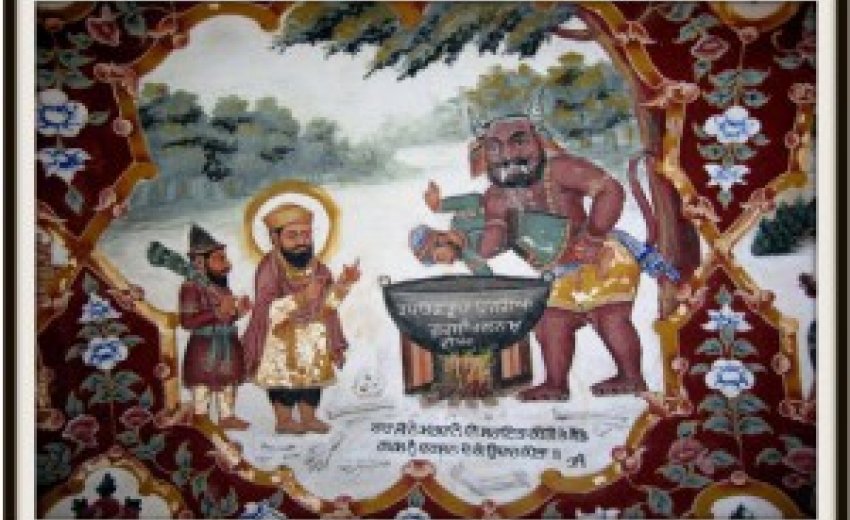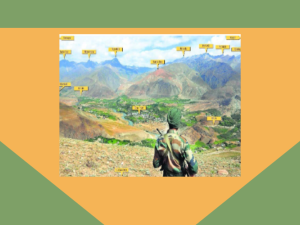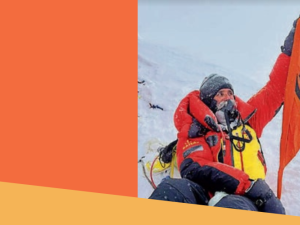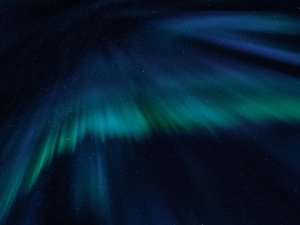Guru Nanak's travels to Dhanasari Des and meeting Kauda cannibal have been found recorded in Janamsakhis. Puratan Janamsakhi [1] mentions episode of Kauda cannibal related to Dhanasari Des on an island.[2] Janamsakhi Bhai Bala [3] too has the episode of Kauda Cannibal. Puratan Janamsakhi has two more episodes connected with Guru Nanak's visit to Dhanasri before this. The first is connected with Khwaja Khidar: Guru Nanak's companions copy local Muslims and start offering fish to the river most probably Tenasserim taking as Khwaja Khidar (a unique mystical figure believed to be immortal and initiate prophets through time). Guru Nanak stopped them from this practice quoting: "Athhe pahri athh khand….dukh(u) such(u) khasmai paas(i)" "Speech is vain and useless. Oh Nanak, pain and pleasure are in the power of our Lord and Master" (Sggs p.146) and "Paun(u) guru paanee pita….keti chhutee naal(i) (SGGS p.8)[4] The other episode is of redeeming a Jain monk and his followers telling them not to get into dirty practices like picking hair from their heads, eating leftovers, smelling excreta, getting their heads clean shaven etc. and asked them to be clean and remember God' Name. He explained; "Sach-hon orai sabh ko upar sach aachar" and sang two hymns: "Satigur(u) hoi dayal t shardha poorie…. Satigur(u) hoi dayal t sach(i) samaie." "When the True Guru is merciful, then your desires will be fulfilled." (SGGS, p.149) and "Sir khohai peeah(i) malwani….ja pat(i) rakhai soi." "They pluck the hair out of their heads, and drink in filthy water; they beg endlessly and eat the garbage which others have thrown away... The Guru is the ocean, and all His Teachings are the river. Bathing within it. glorious greatness is obtained." (SGGS 149-50)" [5]. They all became Guru Nanak's followers.
Here the third episode of Kauda as recorded in Janam Sakhi Bhai Bala is given:
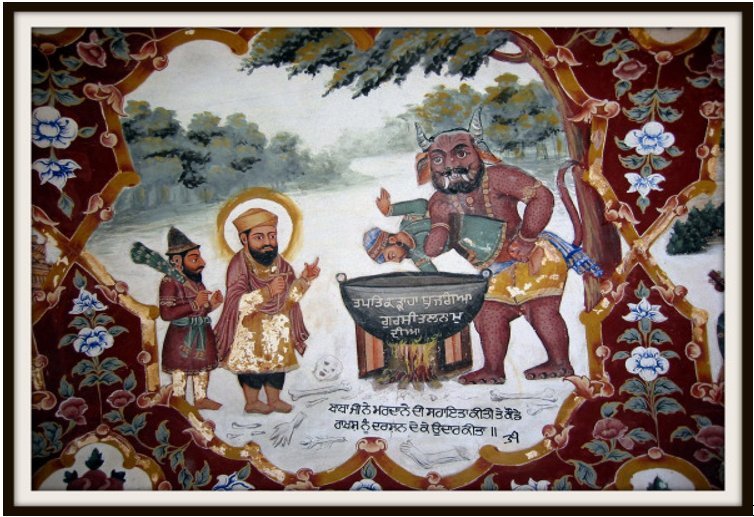 |
| Fresco at Gurdwara Baba Atal Amritsar, Punjab showing Guru Nanak saving Mardana from being boiled in hot oil by Koda Rakshash |
"There is a kingdom of Asrapnah in a foreign land. Guru Nanak started his next visit to the place, known it to be the seat of Jhanda Badhi. As they were passing through an island, Mardana revolted. Guru Nanak was keen to redeem someone but Mardana insisted on not going any further and asked to be relieved. Guru Nanak said: "The route is full of troubles for a lone person. You would not know what would happen and when. It is better that you be with us." Mardana insisted on leaving. Mardana asked Bala to explain him the situation. Bala said, "He is crossing his limits. You being Nanak Nirankari can control him. If some demon catches him Mardana will be no more." Due to his continuous insistence, Guru Nanak did not restrain him. Once Mardana left, nothing was known of him for a day. Guru stayed in the jungle. Second day, at noon, Guru Nanak said to Bala, "Mardana is going to be roasted in a boiling cauldron." Bala had been quite fed up of Mardana's irritating behaviour and did not ponder over what the Guru said. He said in anger: "Let him be boiled." Guru Nanak said: "You must feel responsibility of saving your companion. He is of great worth not only for us but for many others whom he helps getting redeemed."
Guru Nanak and Bhai Bala started towards the direction Mardana had gone. They saw a fire below a cauldron filled with oil for cooking someone. Bala said, "The cauldron containing boiling oil is for cooking Mardana. How can we wait and watch when Mardana is being roasted alive by the cannibal?" Guru Nanak said, "Let us see what God does." They started watching from behind the bushes. When Kauda put Mardana in burning cauldron nothing happened to Mardana. It looked as if the boiling cauldron has frozen and fire has gone off. Demon was astonished. Guru Nanak came out of hiding and said, "Kauda! Why are you not eating Mardana? Why have you kept him safe?" Kauda said: "How do you know my name? I am surprised. Where were you born? Please tell me the truth". Guru Nanak sang a hymn in Rag Maru:
ਫੂਟੋ ਆਂਡਾ ਭਰਮ ਕਾ ਮਨਹਿ ਭਇਓ ਪਰਗਾਸੁ ॥
ਕਾਟੀ ਬੇਰੀ ਪਗਹ ਤੇ ਗੁਰਿ ਕੀਨੀ ਬੰਦਿ ਖਲਾਸੁ ॥1॥ ਆਵਣ ਜਾਣੁ ਰਹਿਓ ॥
ਤਪਤ ਕੜਾਹਾ ਬੁਝਿ ਗਇਆ ਗੁਰਿ ਸੀਤਲ ਨਾਮੁ ਦੀਓ ॥1॥ ਰਹਾਉ ॥
ਜਬ ਤੇ ਸਾਧੂ ਸੰਗੁ ਭਇਆ ਤਉ ਛੋਡਿ ਗਏ ਨਿਗਹਾਰ ॥
ਜਿਸ ਕੀ ਅਟਕ ਤਿਸ ਤੇ ਛੁਟੀ ਤਉ ਕਹਾ ਕਰੈ ਕੋਟਵਾਰ ॥2॥
ਚੂਕਾ ਭਾਰਾ ਕਰਮ ਕਾ ਹੋਏ ਨਿਹਕਰਮਾ ॥
ਸਾਗਰ ਤੇ ਕੰਢੈ ਚੜੇ ਗੁਰਿ ਕੀਨੇ ਧਰਮਾ ॥3॥
ਸਚੁ ਥਾਨੁ ਸਚੁ ਬੈਠਕਾ ਸਚੁ ਸੁਆਉ ਬਣਾਇਆ ॥
ਸਚੁ ਪੂੰਜੀ ਸਚੁ ਵਖਰੋ ਨਾਨਕ ਘਰਿ ਪਾਇਆ ॥4॥5॥14॥
"The egg of doubt has burst; my mind has been enlightened. The Guru has shattered the shackles on my feet, and has set me free. My coming and going in reincarnation is ended. The boiling cauldron has cooled down; the Guru has blessed me with the cooling, soothing Naam, the Name of the Lord. Since I joined the Company of the Holy, those who were eyeing me have left. The One who tied me up, has released me; what can the Watchman of Death do to me now? The load of my karma has been removed, and I am now free of karma. I have crossed the world-ocean, and reached the other shore; the Guru has blessed me with this Dharma. True is my place, and True is my seat; I have made Truth my life's purpose. True is my capital and True is the merchandise, which Nanak has placed into the home of the heart." (SGGS, p.1002)
Kauda cannibal understood that he was facing a great saint who had caste his spell on him. He fell at Guru's feet. He did not get up and kept on requesting forgiveness for his evil deeds. Guru Nanak said, "You have hurt rebec player Mardana; now he only can help your redemption. You will be emancipated if you accept the fact." Kauda said, "He too is acceptable to me. Whosoever you say is acceptable to me. But you must not keep me away." Guru Nanak laughed looked at Bhai Bala inquisitively, who said, "You only know what you ought to do." Kauda requested Guru Nanak: "Please give me some order." Guru Nanak said, "Go and bring something for hungry Mardana to eat." Kauda ran to the jungle and brought fruits. Mardana and Bala happily enjoyed the fruits but Guru Nanak gave his share to Kauda. Having eaten the fruit, Kauda came into ecstasy. He was enlightened. Mardana and Bala were astonished and enquired as to how a cannibal had been emancipated. Guru Nanak explained: "He was waiting for redemption since ages. God has sent me to redeem him. This is done now. God's ways are great. What all is shown by God to you, please enjoy the same."
They stayed for seven days with Kauda. Kauda was established as a religious preacher in the area. All the demons in the area too were redeemed with the True Company of the Guru and became Guru's followers. [6]
The area cited is Dhanasri. Dhanasri is Tenasserim then under Majapahit Kingdom but now partly under Burma, partly under Malay and partly under Singapore. It is also touching Ayudhya kingdom; now in Thailand (earlier known as Siam). In Burma it is a province known as Taninthary and name Tenasserim is spelt as Tanawsri, Tanao Sri, Tanaw Sri in Burmese; Tanah Seri in Malay and Thio Khao Tanaosi in Thai. [7] It is located on Tenasserim hills and the settlements are along river Tenasserim. Asparan or Sparan are the jackfruit grown along Tenasserim River [8] Sparan is also the wood which is grown in plenty in Tenassserim on which this jackfruit sparan grows.
Tenasserim's pronunciation as Tanawsri is very close to Dhanasari. Being one of the full fledged states in Burma, it is a well known country or 'des'. This region is all along the sea enclosing it from east, west and south. Burma, Tanesserim, Malay and Sumatra fall with in South East Asia and was then part of Majapahit kingdom.
There were frequent travels from Chittagong to Tenassarim en route to East Asia and China. One was Niccolo who visited the area in the preceding century before Guru Nanak's visit.
 |
| Map showing Niccolò de' Conti's travels. |
Niccolò de' Conti (1395-1469) visited the area in 1421 and mentioned that the area was infested with cannibals. Niccolo was a Venetian merchant and explorer, born in Chioggia, who travelled to India and Southeast Asia, and possibly to Southern China, during the early 15th century. In about 1421 he crossed to Pedir (north Sumatra), where he spent a year, gaining knowledge of its cannibalistic natives, camphor, pepper and gold. The account of his travels refers to this island as Taprobana, called by the natives Sciamuthera. He then continued (by a stormy passage of 16 days) to Ternassari (= Tenassarim on the Malay Peninsula), sailed to the mouth of the Ganges, visited Burdwan (in Bangladesh), then passed overland to Arakan (= Burma). He then passed to the Racha River (= Lemro River in Burma) which he ascended, crossing the mountains to the River Irrawady at Ava, and returning to Panconia (= Pegu ?), from where he sailed to Java. There he spent nine months before continuing to Vijaya in Ciampa (=Champa = north-western Vietnam).
His travels have been recorded in writing. In the chapter 'From Ceylon to Sumatra and the Andaman Islands', Nicolò de' Conti of Venice writes: 'From the island named Sri Lanka …he passed on to the famous island Sumatra and on to a noble city. There he stayed for 12 months. It is six miles in compass and is a famous having great trade of merchandise in that island. From hence he sailed with a prosperous wind, leaving on the right hand the island Andaman which is Is much to say, as the island of gold thither which is 800 miles compass where in the cannibals do live and no stranger go there except it be for necessity of weather and immediately those barbarous people have them in pieces and eat them. [9] ……having departed the island of Sumatra and sailing for fifteen days, he arrived by tempest of weather unto entrance of river Tenasserim. In this region there are many elephants and there grows much sparan wood. [10]
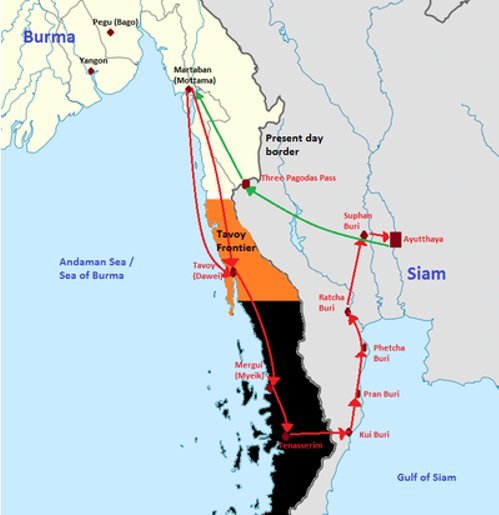 |
| Various routes connecting Tenassarim and Ayudhya adopted by 15th century travellers |
Thus Kauda's place can be related to the belt Sumatra-Tennaserim-Arkan. Further research is needed to select the exact location of this episode in this area.
Reference
[1] Bhai Veer Singh (ed.), August 1926 , Puratan Janamsakhi, New Delhi, Bhai Veer Singh Sahit Sadan, Jan 2006, 15th edition, p. 154 "Tad-hon Baba Dhanasri Des jai niklia''
[2] Ibid, p.154 "Tad-hon samundar ke bareti ke adh vich Bhakh Walait ni hai. Uha raksh aadmi bhakhda tha. Dhanasri Des ka''.
[3] Surinder Singh Kohli (Dr) ed.,1995, Janamsakhi Bhai Bala, Chandigarh, Punjab University, 2nd edition pp. 156-158.
[4] Bhai Veer Singh (ed.), August 1926 , Puratan Janamsakhi pp.149-151
[5] ibid pp.152-154
[6] [3] Surinder Singh Kohli (Dr) ed.,1995, Janamsakhi Bhai Bala, pp. 156-158.
[7] http://en.wikipedia.org/wiki/Tenasserim_Hills retrieved on 28/02/2015
[8] Jackfruit (Artocarpus champeden) is the fruit of plants from the family Moraceae. Fruit shape, flavor and fragrance such as Jackfruit, although often stab strong aroma like fruit Durian. This plant comes from Southeast Asia, and spread from Tenasserim region of Burma, the Malay Peninsula, including Thailand, and partly archipelago: Sumatra, Borneo, Sulawesi, Maluku up to Papua; also a common sight in western Java. Monthly Archives: November 2013, Benefits of fruit Cempedak, November 24; Originally posted on Bakulatz.
[9] Nicolò de' Conti of Venice: Early Fifteenth Century Travels in the East: Translated by John Frampton in the late sixteenth century Notes by Kennon Breazeale East-West Center, SOAS Bulletin of Burma Research, Vol. 2, No. 2, Autumn 2004, p. 110 ISSN 1479-8484, s://www.soas.ac.uk/sbbr/editions/file64309.pdf
[From] the ilande named Zaylan [Sri Lanka] ... he passed unto the famous ilande named Taprobana [Sumatra], which the Indians calle Scyamucera, 2 where is a noble Citie, and there he has a twelve month: it is sixe miles in compasse, and is a famous Citie, having greate trade of Merchaundise there, and in al that Island. From hence he sayled with a prosperous winde, leaving on the right hand the iland Adamania, 3 which is as much to say, as the Ilande of Golde, whyche is 800 myles compasse, wherein the Evitrofagitas 4 doe live, and no straungers goe thyther, except it be for necessity of weather, and immediately those barabrous people hewe them in peeces, and eate them. (extract from p.110)……..
[10] Ibid, Tenasserim: Having [departed] the iland of Taprobana, and sayling fifteene days, he arrived by tempest of weather, unto the entring of a river called Tenaserim, 7and in this region there be manye Elephants, and there groweth much Brasill.(sparan wood)
Sources and bibliography:
- Surinder Singh Kohli (Dr) ed.,1995, Janamsakhi Bhai Bala, Chandigarh, Punjab University, 2nd edition
- Bhai Veer Singh (ed.), August 1926 , Puratan Janamsakhi, New Delhi, Bhai Veer Singh Sahit Sadan, Jan 2006, 15th edition,
- Bracciolini, Poggio: De varietate fortunae, book iv [c.1445] (ed. by Abbé Oliva, Paris 1723).
- http://en.wikipedia.org/wiki/Tenasserim_Hills retrieved on 28/02/2015]
- Frampton, John (trans.): The most noble and famous travels of Marcus Paulus...into the east partes of the world (first Eng. trans.[from Rodrigo de Santaelle's Spanish edn.], London 1579; ed. by N.M. Penzer [with the travels of Nicolo de Conti], Argonaut Press 1929, 1937; Amsterdam 1970).
- Longhena, M. (ed.): Viaggi di Nicolo de' Conti (Milan 1929).
- Major, R.H. (ed.): India in the fifteenth century. Being a collection of narratives and voyages...preceding the Portuguese discovery of the Cape of Good Hope... (English trans. by J. Winter Jones, Hakluyt Society, London 1857).
- International Boundary Study no 63- Burma-Thailand Boundary
- Le voyage aux Indes de Nicolò de' Conti (1414-1439), Wikioedia downloaded 15/02/2015
- "Tenasserim (in Tenasserim (region, Myanmar))". Encyclopædia Britannica. Retrieved 2010-11-14.
------------------------------------------------------
Listen to the SikhNet original Audio story
------------------------------------------------------
Other articles by this author:
Guru Nanak Visits Empire of 100 Islands
Guru Nanak's Unknown Visit to Singapore

